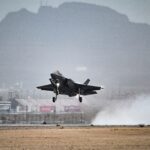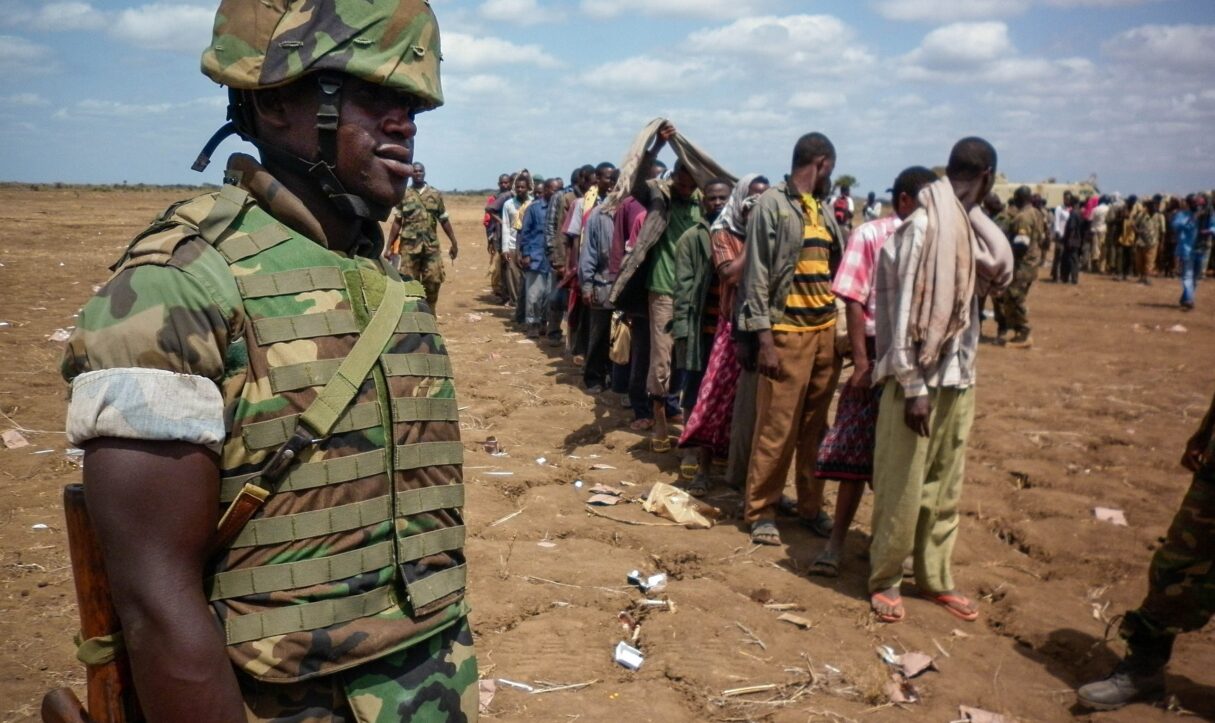Weeks into his second presidency, Donald Trump is making good on numerous campaign promises. This includes mass deportations, pulling out of multilateral partnerships, and attacking inclusive labor practices. These actions leave us to question what the president’s plans are for fulfilling another of his promises: to end endless wars.
The US is effectively at war in three countries: Iraq, Syria, and Somalia. Amid recent reports of several strikes in Somalia, the world is left to wonder what the new Trump administration will do there.
In fact, Somalia is where the United States is using the most force under the war authorization passed by Congress days after the 9/11 attacks — the 2001 Authorization of Use of Military Force (AUMF).
During his first term, Trump ramped up strikes in Somalia, conducting an unprecedented number — more than triple the amount of Presidents Biden, Obama, and Bush combined. Then, in 2020, he abruptly pulled all 700 troops out. This strategy directly contributed to the resurgence of the armed Somali group al-Shabaab and the continued decline of Somali security, leading to President Joe Biden’s decision to send back 500 troops less than two years later.
In his inauguration speech, Trump said the US “will measure our success not only by the battles we win but also by the wars that we end.”
But what will he really do? Past policies only intensified instability and led to increased intervention and a prolonged war. If Trump really wants to end wars and get us out of Somalia again, he needs to do it in a way that advances peace and resilience.
*
American involvement in Somalia spans decades and has left lasting impacts, up to and including its current instability. Back in 2006, the US-backed invasion and occupation of Somalia by Ethiopian troops resulted in the worst humanitarian crisis in Africa at the time. Somalia has struggled to regain its footing and has since been characterized by experts as a “shadow state.” Shadow states are a product of personal rule and fueled by corruption, where formal state capacities are practically nonexistent, and rulers hide behind a façade of de jure sovereignty.
Since 2007, American involvement under the 2001 AUMF has shifted to counterterrorism efforts, targeting Al-Shabaab. Passed in the wake of the 9/11 attacks, successive presidential administrations have used this war authorization, originally intended to target groups responsible for the attacks and those who harbored them (i.e. al Qaeda and the Taliban), to justify using lethal force in more than half a dozen countries.
Year after year, the US pours billions into the global “War on Terror.” Even though studies have found more cost-effective ways to prevent and end conflict. The International Monetary Fund reports that every dollar invested into peacebuilding programs that use nonviolent means to prevent and respond to violent conflict can save between $26-$103 in the cost of war. Critical nonviolent tools like diplomacy, economic development, and programs to foster post-conflict community reconciliation are essential elements of national power that must take priority in the response to violent conflict.
*
So, if President Trump does plan on once again removing troops from Somalia, it’s crucial that he course correct to prevent the impacts sudden withdrawal had on Somali peace and security years ago. In the year following his 2020 withdrawal, the Africa Centre for Strategic Studies reported the number of al-Shabaab attacks grew from 1,771 to 2,072 — a 17% increase. The group had taken advantage of the political instability in the sudden absence of the US military. It regrouped, reorganized, and came back with a vengeance.
Without US assistance, Somali security forces failed to maintain the gains they had made in containing the terrorist group. Somali special forces, such as the Danab Brigade, relied on the on-the-ground training from the US in carrying out military missions. Without US boots on the ground assisting Somali forces in containing resurgences, al-Shabaab was able to organize some of their deadliest and most sophisticated attacks.
Repeating this course of disengagement could result in al-Shabaab regrouping further and threatening regional stability. The Somali people also risk being cut off from humanitarian aid during a time of great crisis brought on by climatic events, conflict and insecurity, widespread poverty, and disease outbreaks. Allowing al-Shabaab the opportunity to regain its footing and expand their occupied territories will threaten the ability of humanitarian operations to reach Somalia’s most vulnerable communities. Our decades-long involvement in Somalia has undoubtedly contributed to its current instability, however, another sudden withdrawal will not serve as any kind of effective solution to this complex problem.
*
The facts are that 43% of conflicts with non-state groups end via “a peaceful political accommodation with their government,” while only 7% conclude because of military force. The true solutions to defeating al-Shabaab and building a more resilient Somalia lie in centering more effective non-military tools.
The US has abundant alternatives to war that are more effective in reducing conflict and aiding stability. For example, developing the Somali Police Force (SPF) with equipment, training and advisory support has enhanced enforcement capabilities and empowered the SPF to handle security threats without lethal force or US military intervention. Even bigger successes emerged through USAID’s Transition Initiatives for Stabilization. This program proved instrumental in advancing stability through community-driven development and building confidence in local government. Notably, it worked with youth from rival clans to form a committee that advanced local cooperation and stability.
These successes, and many others, are only possible through responsible and thoughtful leadership. As Trump takes on his second term, his administration cannot forget the impacts abrupt withdrawal had on Somali security in the past. It is in America’s national security interest to prevent further destabilization while prioritizing policy with long-term solutions that bring everyone closer to peace through non-militarized actions.
Ending endless wars doesn’t mean abandoning the world’s most vulnerable. It means finding the solutions that foster reconciliation and resilience, leaving no space for terror to thrive. If Trump wants to end war, he needs to focus on the solutions that work.














